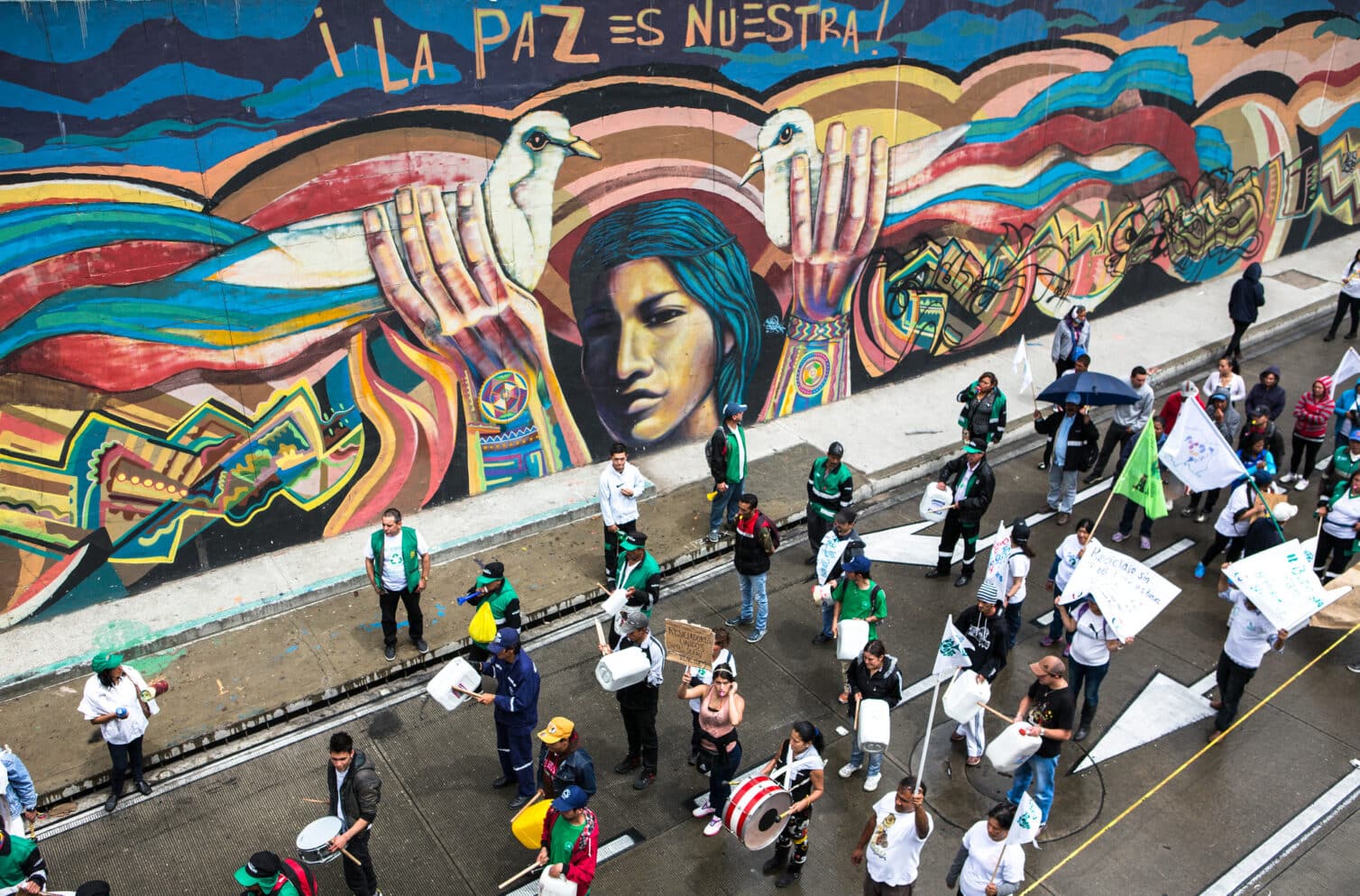Newsroom
Explore the latest news on our research and activities, including press releases, multimedia content and statistics on the informal economy for journalists.
Explore the latest news on our research and activities, including press releases, multimedia content and statistics on the informal economy for journalists.

Members of several waste pickers associations in Bogotá demonstrate to protest city policies and programmes affecting waste pickers. Some of the issues included in their demands were back payments, the need for real inclusion in the city's waste management master plans, compensation for those with animal-traction vehicles, and the citys intentions to install sealed smart waste containers that, in the absence of a consolidated culture of segregation at the source, would in effect mean further limitations to access to recyclable materials for waste pickers. Photo Credit: Juan Arredondo/Getty Images Reportage
nicole.pryor@wiego.org or +64 27 239 2575 (UTC/GMT +12)
graciela.mora@wiego.org or +506 8358 5592 (UTC/GMT -6)
Multimedia resources and storytelling assets.
Download high-quality images of workers in informal employment. Access our Getty Images collection without charge, supported by the Hewlett Foundation.
See Images(this link opens in new window)Latest data and statistics on the size, composition and contribution of the informal economy.
Explore Our Latest Data(this link opens in new window)Quick answers to frequently asked questions about the informal economy and issues that affect workers in informal employment.
Read More(this link opens in new window)